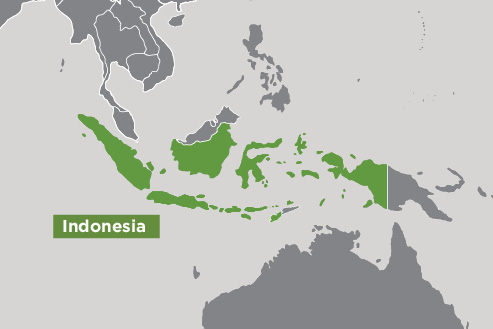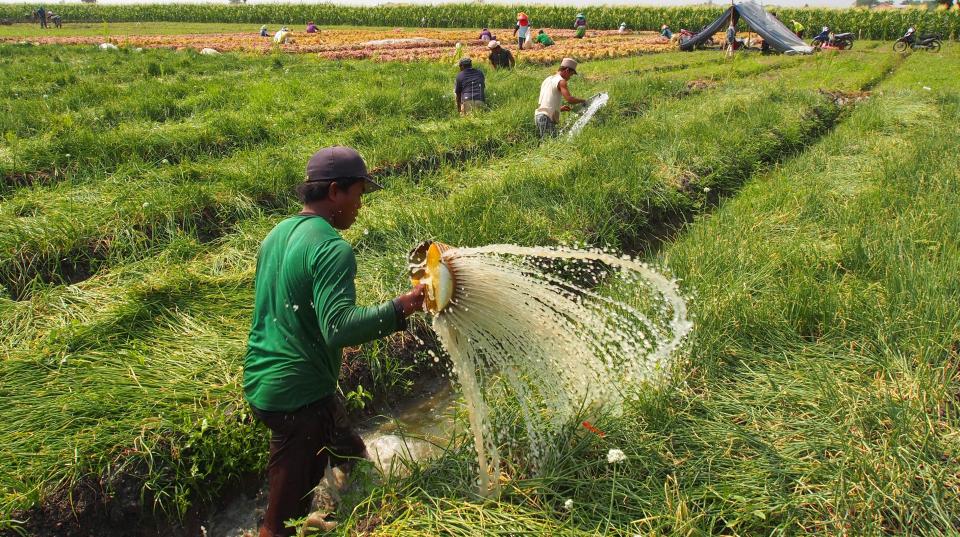Overview
This project aims to address key issues and challenges associated with the safe sustainable production and intensification of high-value vegetable cropping options (particularly shallot and chilli) in coastal agro-ecosystems.
The coastal and upland agricultural systems of Indonesia support the livelihoods of the majority of rural people and vary in intensity from predominantly low-value rice production to highly intensive mixed rotations including high value vegetables. Indonesia’s most significant vegetable commodities are shallot and chilli which are integral components of Indonesia’s unique cuisine.
Despite yield improvements, the profitability of traditional rice-only cropping systems has dropped substantially over the last 30 years. The heavy reliance on lower-value cropping denies opportunity for rural poverty reduction, hence diversification away from solely rice-cropping is important. Vegetable cropping offers the best opportunity for reducing rural poverty; however, vegetable-based production systems suffer from a large range of cropping constraints that have negative economic, social, and environmental impacts. Crop productivity losses relate to a large range of factors including degraded soil properties, climatic impacts, poor agronomic management, biotic stresses and excessive inputs of pesticides and fertilisers. The excessive use of pesticides results in undefined exposure risks to poor rural workers and to contamination of the environment.
The project addresses key issues and challenges associated with the safe, sustainable production and intensification of high-value vegetable cropping options (particularly shallot and chilli) in the sensitive coastal agro-ecosystems.
Project outcomes
- Identifing pathways for nutrient loss and developing strategies to reduce excessive fertiliser inputs in the coastal agro-ecosystems.
- Mitigating the impact of soil pathogens and improving soil biology in coastal vegetable production.
- Evaluating the potential impact of undiagnosed soil and nutrient constraints to vegetable production.
- Developing multi-faceted strategies for the management of pepper yellow leaf curl virus (PYLCV).
- Optimising and extending strategies to reduce excessive pesticide use and improve efficacy in vegetable systems.
- Evaluating the impact of improved agronomic practices on productivity and seed production in the priority allium crops.





